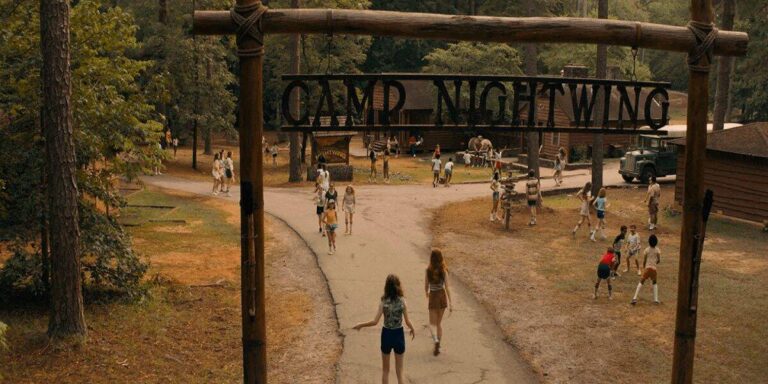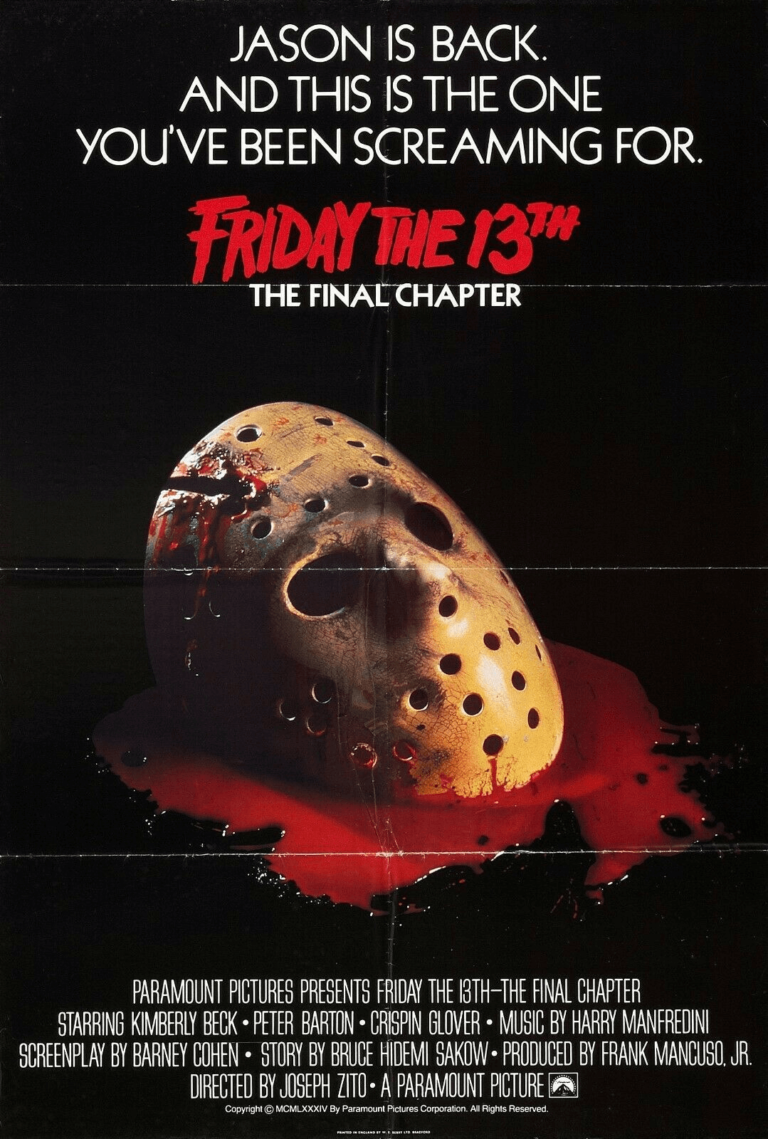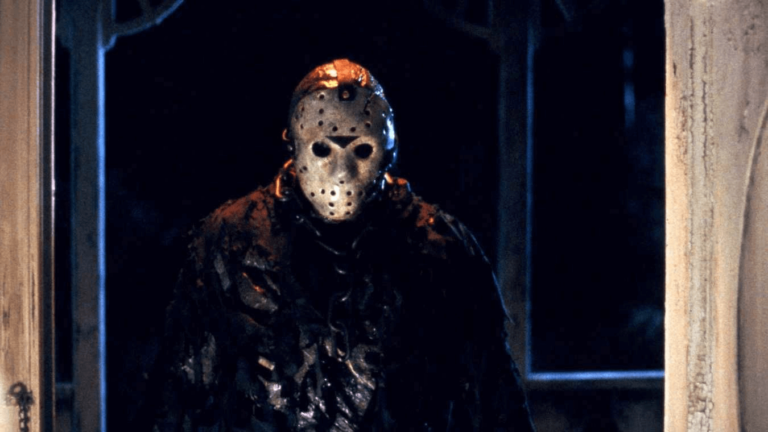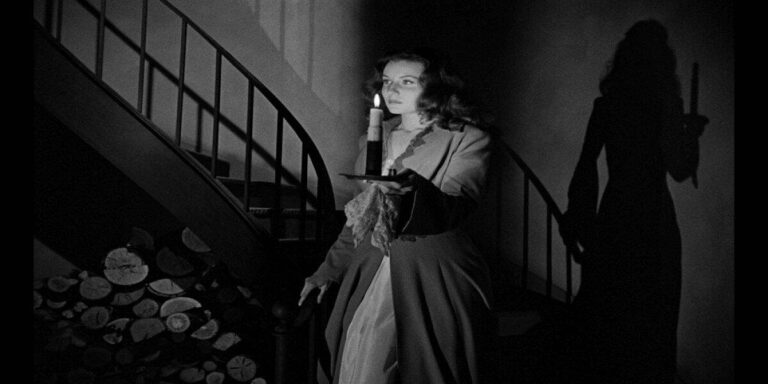6 Key Blogging Lessons I Learned Writing My First 100 Posts

Hello, loyal readers! Recently, I posted my 100th Slasher Shack blog post, 12 Future Stars Who Appeared in Obscure Horror Movies. The site has come a long way since its birth in June 2022. The very first post was Ranking The Summer Camp Slasher Movies (Besides Friday the 13th).
The site has undergone numerous changes since then. I’ve learned some important lessons about blogging along the way. Here are five key blogging lessons I learned from writing my first 100 blog posts.
To clarify for all you non-digital marketing folks out there, here is what a couple of the acronyms in this post mean:
SEO: Search Engine Optimization
SERP: Search Engine Results Page
Blogging is a Long Game

If anyone has ever told you that blogging is a quick way to get lots of readers (or make a boatload of money), they’re either lying or crazy. Blogging takes patience, consistency, and discipline over a long period of time.
This is probably the most discouraging of the blogging lessons in this article. Many people start blogs, get frustrated, and abandoned them after a few months. It’s important to have a realistic idea of the scope of what you are trying to achieve. Also, make sure to find a niche that you truly love and will not get sick of writing about!
Unless you’re a famous person with an already established fanbase, your new blog is going to receive minimal attention at first. Maybe, if you’re lucky, your mom or brother or close friends will read your early posts. That will be about it!
It takes months (or years) of consistent work to build an audience. New content will appear far below the content from established sites on SERP’s (if it appears at all), making it unlikely that someone will stumble upon your brand new site with a Google search.
Consistency is Key

It’s important to get into a consistent habit when it comes to blogging. Ideally, you should be posting at the same time each week/month. Whether you’re posting several times a week, or only a couple times every thirty days, a consistent posting schedule is important.
I post new content each Wednesday and Sunday. Wednesday is typically a movie or book review and Sundays are for list articles. To me, it makes sense to post a list article on Sundays because this is one of my most high traffic days and to post a review article on Wednesday since readers will be looking for something to watch for the upcoming weekend.
Create an upcoming schedule of blog ideas so that you don’t have to scramble at the last minute to figure out what to write. Then you’ll have everything planned out. You’ll know what you’re going to write about and when it’s going to be published.
Don’t Orphan your posts

A blog post is considered orphaned when it isn’t linked to any internal content. Search engines have trouble making sense of them and they are less likely to be indexed. These lonely posts are left out in the cold, unloved and forgotten.
Don’t abandon your posts to this dreary fate. Make sure to give them at least one internal link. Of course, the linked content needs to be relevant to the subject matter. Randomly linking up unrelated posts will just confuse Google (and your viewers). Make sure to add related posts whenever possible.
I also like to provide a link back to the main category page, i.e. a movie review will have a link to the main Slasher Shack movie reviews page so that readers can click on it and get an overview of other reviews that may interest them.
Pictures are an incredibly important Part of blogging

When I first started blogging, I had no experience with using pictures in a blog. I had a ton of difficulty getting the pictures to look the way I wanted. It was extremely frustrating! It didn’t help that I was using a horrible cheap Wordpress theme at the time. Seriously, I had one of the ugliest websites on the internet when I first started. My site was an eyesore with a black background and barely readable text.
Pictures are important on a number of different levels. Along with adding aesthetic and informational content, they can help your SEO. Keywords should be added to the alt text box of each pic. This helps search engines “read” the pictures. Also, it’s vitally important to optimize your pics by using compression software. This will keep pictures from taking up too much space and slowing down your site. I like to use Tiny PNG to compress my posts.
Disclaimer: I am not giving legal advice.
Make sure that you are only utilizing pictures that you are allowed to use. Stock photo websites like Unsplash are a great resource. For movie sites like mine, I use pictures for review and commentary under “fair use” laws in the United States. It’s important to always attribute the photos to the rightful owner. It’s the right thing to do professionally, legally, and ethically.
Update, update, update

Of all the blogging lessons, this is the easiest to neglect. I’m always looking ahead to the new content that I’m creating. So, why go back and work on the old stuff again? Because it benefits the blog tremendously. It’s crucial to invest time to update old blog posts. Search engines (and readers) love fresh content.
I used to be lax about this. Now, I go back to old blog posts and realize how different (and worse) they are compared to my newer content. Your goal should be to have every post reach the same quality standard.
Along with adding internal links (and, whenever possible, external links from reputable sources), you should check for grammatical errors, outdated information, and format issues. Updating your posts will keep them fresh for search engine web crawlers and enhance your chances of ranking highly on SERP pages.
When it comes to SEO, It’s Better to be a big fish in a small pond

This is perhaps the most important of all the blogging lessons in this article. It’s important to choose SEO keywords that don’t already have enormous amounts of prominent pages dedicated to them. This is especially true when you’re first starting out. If you write an article about a keyword that gets a million Google searches a month, you’re going to get buried behind established websites.
Of course, the opposite is also true. If you use a keyword that no one searches for, your post will be ignored, even if Google is ranking you at the top of the SERP. It’s important to find a sweet spot in between. Keywords with a few hundred or a few thousand words are often preferable, especially for newer sites. There are some excellent tools to help with Keyword research. I use Keywords Everywhere for virtually every post I write. Google Keyword Planner is useful as well.
Speaking of SEO, make sure to get a solid Wordpress SEO plugin. It will make optimizing your posts so much easier! I personally use AISEO. Another popular plugin is Yoast. I don’t think you can go wrong with either of these.
The Journey Continues – more blogging lessons to come!
I feel good about the blogging lessons that I’ve learned so far. Of course, there’s still lots more to discover, especially in a rapidly evolving industry like this one. Blogging has already changed so much over the past several years, and it is sure to change a great deal more in the years to come. Hopefully I’ll do a follow-up with more blogging lessons after I reach 200 blog posts!
Thanks for reading!





